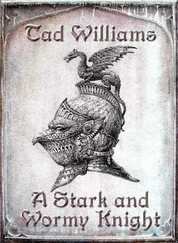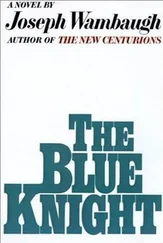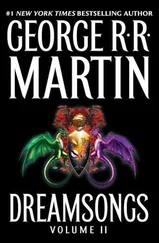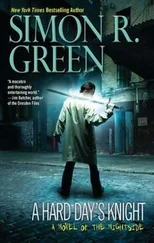“Mum…” Her mother stirs a little, her eyelids flicker.
“Mum, something happened…” Her mother’s eyes stay closed and then Catherine tells her everything she has been unable to tell Robert. Out it comes. Her shame, her guilt. All of it. But her mother is silent. Has she heard? Or has Catherine’s story slipped into her dreams? Yes, perhaps she is dreaming Catherine’s tale. She may remember some of it, who knows, and then dismiss it as a dream. To have said it out loud for the first time has helped Catherine, enough at least for her to fall asleep again, a sleep so deep she doesn’t feel her mother reach for her hand in the night, and hold it for a while, then give it a little squeeze.
Everything I do now is with Nancy’s blessing. I feel more certain of that when I wear her cardigan, all the years she wore it absorbed into the wool. It is a constant, although a little out of shape from where I have stretched it around me. I wear a hat of hers too, one that she knitted. There are strands of hair still in it, her DNA snuggling up against mine. It takes me back to a time when we were as close as any two people could be: how we were when we first met, before Jonathan, before she became a mother. When it was just the two of us. I feel as if it is the two of us again now. Collaborators. Coauthors. Our book now, not just Nancy’s.
It was me who gave it a name. We always helped each other out if we were stuck for titles and I could almost hear her clap her hands together and say, “Yes, that’s it,” when I came up with The Perfect Stranger . The ending is mine too. Nancy had come up with a different end, a little more subtle perhaps, but I decided that for the book to make an impact on its first reader we needed something stronger. It was me who killed the mother off.
Still, it was Nancy who did the hard graft. I try not to think too often of her sitting alone in Jonathan’s flat, writing, staring at the photographs and discovering the truth about why our son was driven to save that child. She succeeded in filling in the haziness surrounding his death and making sense of its senselessness. I’m sure it kept her going, gave her a reason to get up in the morning, as it had me, and it was only when she had finished that she allowed the cancer to take hold. That’s why she didn’t call on me during that period, the book was enough for her.
My local bookshop has sold quite a few copies according to Geoff, and a few have gone in Catherine Ravenscroft’s too. Not as many, but a few. It gives me a small thrill to know there are strangers out there who dislike her, that I am gathering my forces and widening the net. Softly, softly we creep up behind her. More and more of us.
Even without looking at the numbers Catherine guesses which house is his. It’s the house you’d love to walk right past without stopping, but this house meets Catherine’s eye and calls to her, like the phlegmy growl of a homeless drunk on the Charing Cross Road.
This house is blind, its windows thick with dirt. The paintwork, so new and pleasing on the houses on either side, is scabby and peeling. The garden is being strangled by bindweed, but there’s one valiant rosebush, blushing pink, rebellious, which Catherine can smell as she walks up the path — its sweet scent defying the savagery around it. Her knock echoes down the street. There’s no answer and there’s no bell so she bangs again, harder this time. She crouches down and pushes the letter box. Its flap stays open, no metal basket on the other side to catch letters, just a straight view through to the house. She sees a pair of shoes near the door, scuffed and dirty, and a coat hanging over the back of a chair.
“Hello. Mr. Brigstocke. Please open the door. It’s Catherine Ravenscroft.”
She is determined and yet she hears a tremor in her voice. She tries again.
“Please. I know you’re there. Open the door. We must talk about what happened.” The house stays exactly where it is and so does Catherine, watching for the slightest movement. He has poisoned Robert against her — driven her from her home. The least he can do is look her in the eye and listen to what she has to tell him.
“Mr. Brigstocke. Please open the door. Nothing you do to me is going to bring Jonathan back. Please. I have a right to be heard.”
But the door stays closed. She calls the number Kim had given her. She hears the phone ring inside. A voice answers. “Hello, we’re sorry we’re not here…” A woman’s voice. Nancy Brigstocke. She can’t leave a message with a dead woman. She needs to see him, needs to make him listen, needs to make him stop. She is sure he is in there. She crouches down, pushing her arm through the letter box as far as it can go. It is slender, so up to her elbow. She twists it, trying to reach the latch, but she can’t and withdraws it. She puts her face to the letter box again:
“I know you have my number. Call me — speak this time. I want to talk about Jonathan. I deserve to be heard, Mr. Brigstocke.” She stays on all fours, her forehead resting against the door. She hears the tinny distortion of a radio coming from further up the street and glances round to see a parked van, windows wound down, two builders sitting eating their lunch. She turns back to the door and decides that perhaps he isn’t in after all, so dials the number again, and this time leaves a message.
It was as if she’d sent a sightless serpent through our letter box. We watched its blind head sniffing the air, trying to smell us out, then stretching to reach the latch — trying to break in. I should have taken an axe to her. But I’m mixing my daemons here. She is more siren than Medusa. We heard the evil in her voice trying to lure us to the door then singing through the telephone. She wants us to listen, does she? She wants to talk, does she? She has something to say. Well, it’s too late for that now. We haven’t got the stomach to witness her bleeding heart or her husband’s, for that matter.
He’s become quite a pest, leaving messages on the site for The Perfect Stranger , desperate to make up for lost time, desperate to meet us. He believed we were still “us,” still Mr. and Mrs., until I emailed him back and broke the news that my wife had died some years ago; Jonathan was our only son; she never recovered from his loss. It’s pitiful, poor man. I think he is well aware that he is an incidental character in this story. I have no interest in meeting him but I am happy to answer his questions when I can. “Why now?” was simple. The truth was enough. The discovery of my wife’s writings and the photographs and realising that for years she had protected me from knowing that the little boy Jonathan lost his life for was not a stranger, that my son had been intimate with his mother. Our emails have been gratifying. His reveal evidence of his disgust for his wife and the pains he is taking now to distance himself from her, “unforgiveable,” “shameful cruelty” ; he is grateful for finally “ knowing the truth ” and he is “hoping for some kind of reconciliation.” His language is that of a committee member addressing the wrong-doings of an evil dictatorship.
I expressed my sorrow at the hurt and shock I must have caused him by sending him the book and photographs, and too, my regret that I had left a copy for his son at work. “ I was out of my mind, ” I said, “… as if I was reliving the loss of Jonathan and Nancy all over again. ” I hoped he could at least try and understand my grief. And I believe he has, never questioning me over Nancy’s portrayal of his wife as a sexual predator. He has joined ranks with us against her.
Читать дальше












